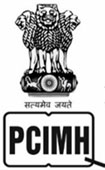Designed & Developed by M/s Akiko Sherman Infotech, Hosted by NIC/NICSI Content Provided by Pharmacopoeia Commission for Indian Medicine & Homoeopathy
Site Search
FAQs
- What is Pharmacopoeia?
- What is Formulary?
- What is Indian Medicine?
- What are the main ongoing activities of PCIM&H?
- How to procure publications from PCIM&H?
- What is Draft for public comments?
- What is Effective Date?
- What is legal status of Pharmacopoeias and Formularies?
- What is Homoeopathic Pharmaceutical Codex?
- What are the Atlas documents related to ASU&H Pharmacopoeias?
- How to approach PCIM&H?
The Pharmacopoeias are official compendia of quality standards of the drugs being imported, manufactured for sale, stocked or exhibited for sale or distributed in India. The pharmacopoeial monographs prescribe standards to ensure the Identity, Purity and Strength of the given drugs through botanical identification, various physico-chemical parameters, assays for various elements/functional groups/marker compounds as well as sophisticated analytical techniques like High Performance Thin-Layer Chromatography (HPTLC), High Performance Liquid Chromatography (HPLC), Gas Chromatography (GC), UV-Visible Spectrophotometry, Atomic Absorption Spectroscopy (AAS) and Inductively Coupled Plasma Atomic Emission Spectroscopy (ICP-AES) / Inductively Coupled Plasma Mass Spectrometry (ICP-MS) etc. for detailed profiling. In addition to this, limits for heavy/toxic metals, pesticide residue, aflatoxins and microbial contamination are also prescribed.
The Formularies are official compendia incorporating details of classical formulations / formulations in practice in vogue. They decipher the selected formulations with description of composition of the drugs, method of preparation (general to the dosage form as well as specific to the formulation), dosage, adjuvant/vehicle, therapeutic uses etc.
Indian Medicine is commonly understood as Systems of Medicine indigenous to India. Government of India currently recognises four systems namely Ayurveda, Siddha, Unani and Sowa-Rigpa as part of National systems of Medicine.
PCIM&H currently deals with Pharmacopoeias, Formularies and associated publications related to Ayurveda, Siddha, Unani and Homoeopathy systems of Medicine. Since pharmacopoeial institutions for Sowa-Rigpa have not yet been established, this system is not brought under purview of PCIM&H as of now.
PCIM&H also acts as Central Drug Testing cum Appellate Laboratory for Indian systems of Medicine & Homoeopathy.
Publications can be purchased from Stores of PCIM&H by payment in cash mode or by Demand Draft drawn in favour of Pharmacopoeia Commission for Indian Medicine and Homoeopathy, payable at Ghaziabad.
The documents planned for publication by PCIM&H are initially drafted in consultation with concerned expert committees and are displayed on the website for inviting comments/inputs/suggestions from the stakeholders as well as general public. Such draft documents shall not be used as authoritative versions. The comments/inputs/suggestions received within stipulated time are scrutinized so as to incorporate necessary corrections in the Draft. In later course, such documents after finalization through due procedure are published and made enforceable from the effective date.
Effective date is the date mentioned in a PCIM&H publication of regulatory nature from which the publication is deemed to be enforceable. The effective date can be found on the back-leaf of inner cover page of the given document.
Ayurvedic Pharmacopoeia of India (API), Siddha Pharmacopoeia of India (SPI), Unani Pharmacopoeia of India (UPI), Homoeopathic Pharmacopoeia of India (HPI), Ayurvedic Formulary of India (AFI), Siddha Formulary of India (SFI) and National Formulary of Unani Medicine (NFUM) represented by their parts and volumes become part of Drugs & Cosmetics Act, 1940 and Rules thereunder from the respective effective date and are to be treated as official standards.
Homoeopathic pharmaceutical codex is a document related to Homoeopathic drugs. It covers quality related and technical information of the drugs not covered under HPI. It has no regulatory status.
Atlas documents related to ASU&H Pharmacopoeias are the supporting documents to the pharmacopoeial publications which further increase the utility of the respective pharmacopoeias by providing additional information about the techniques used therein. The details given in Atlas documents are solely to help the analytical personnel in the laboratory, as an additional aid for monitoring identity and purity of drugs and for detecting adulteration and substitution, if any. These publications have no regulatory status.
PCIM&H can be approached through following modes:
In person: With prior permission from Office of PCIM&H
E-mail: dir.hpl-ayush[at]gov[dot]in
Correspondence Address:
Director,
Pharmacopoeia Commission for Indian Medicine and Homoeopathy (PCIM&H)
Kamla Nehru Nagar, Post Kavi Nagar
Ghaziabad, Uttar Pradesh, India
PIN - 201 002
Telephone: +91-120-2787014













